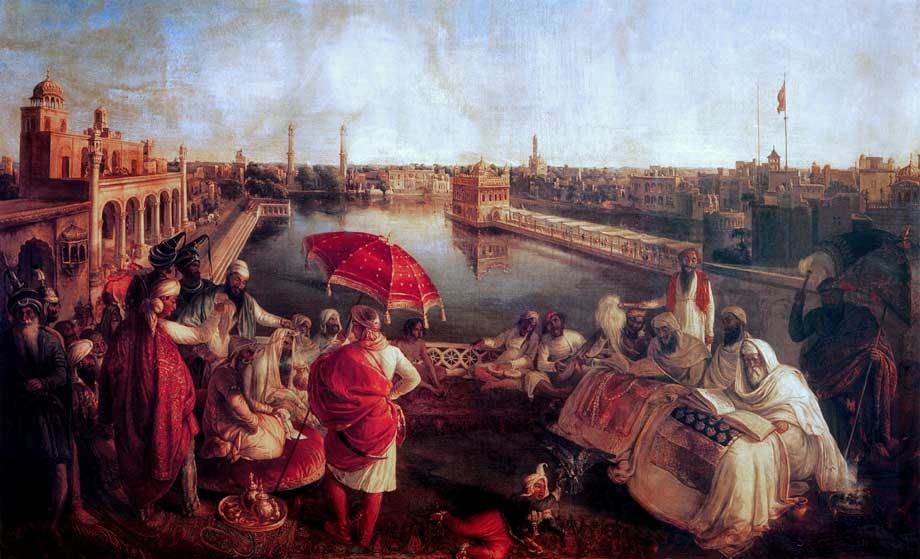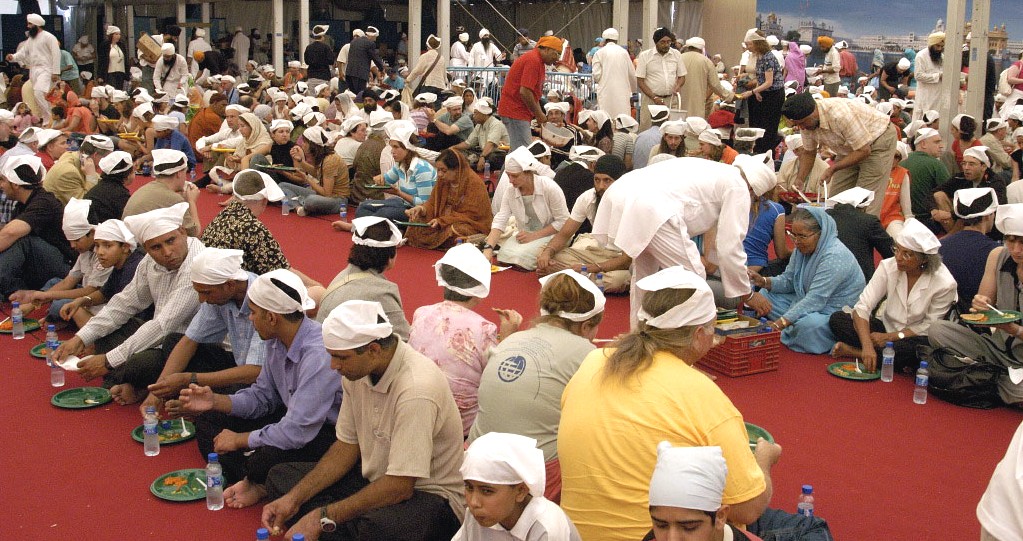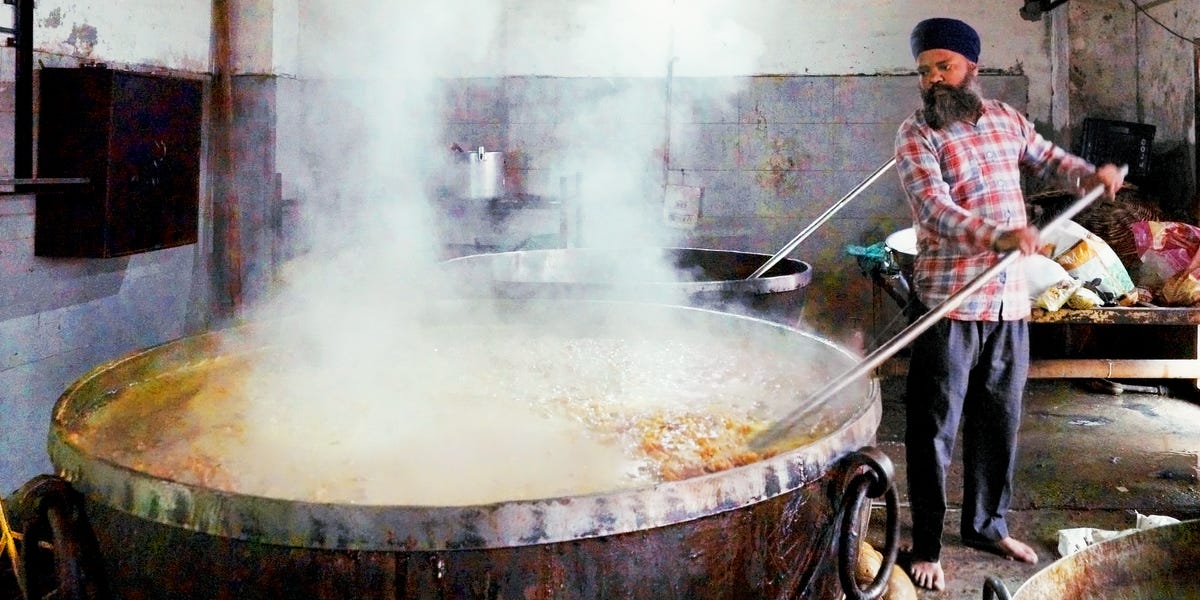steve_bank
Diabetic retinopathy and poor eyesight. Typos ...
I ice had a Sikh cab driver. There is a ppuluation in Seattle. We got into a conversation.
I asked how Sikhs view women. He said they have a saying 'Women give birth to princes' how can there be anything bad about women.
I asked about how they viewed other traditions. He pointed out to the road and said 'Many roads lead to the top of a mountain'.

 en.wikipedia.org
en.wikipedia.org
Their main temple in India feeds thousands. A Sikh temple in Seattle has a weekly open feed.

 en.wikipedia.org
en.wikipedia.org

 www.insider.com
www.insider.com
Christians do not have a lock on morality, charity, and service.
I asked how Sikhs view women. He said they have a saying 'Women give birth to princes' how can there be anything bad about women.
I asked about how they viewed other traditions. He pointed out to the road and said 'Many roads lead to the top of a mountain'.

Sikhs - Wikipedia
Sikhs (/sɪk/ or /siːk/); Punjabi: ਸਿੱਖ, sikkh [sɪkkʰ] Devanagari: सिख) are an ethnoreligious group[74] who adhere to Sikhi or Sikhism,[75] a Dharmic religion that originated in the late 15th century in the Punjab region of the Indian subcontinent, based on the revelation of Guru Nanak.[76] The term Sikh has its origin in the Sanskrit word śiṣya (शिष्य), meaning 'disciple' or 'student'.[77][78][79]
Male Sikhs generally have Singh ('lion') as their last name, though not all Singhs are necessarily Sikhs; likewise, female Sikhs have Kaur ('princess') as their last name. These unique last names were given by the Gurus to allow Sikhs to stand out and also as an act of defiance to India's caste system, which the Gurus were always against. Sikhs strongly believe in the idea of sarbat da bhala (welfare of all) and are often seen on the frontline to provide humanitarian aid across the world.
Sikhs who have undergone the Amrit Sanchar ('baptism by Khanda'), an initiation ceremony, are known as Khalsa from the day of their initiation, and they must at all times have on their bodies the five Ks:
kesh, uncut hair usually kept covered by a dastār, also known as a turban;
kara, an iron or steel bracelet;
kirpan, a dagger-like sword tucked into a gatra strap or a kamar kasa waistband;
kachera, a cotton undergarment; and
kanga, a small wooden comb.
Tarn Taran Sahib - The World's Largest Sarovar (sacred pool)
The Punjab region of the Indian subcontinent has been the historic homeland of the Sikhs, having even been ruled by the Sikhs for significant parts of the 18th and 19th centuries. Today, Canada has the largest national Sikh proportion (2.1%) in the world,[13] while the Punjab state in India has the largest Sikh proportion (58%) amongst all administrative divisions in the world. Many countries, such as Canada and the United Kingdom, recognize Sikhs as a designated religion on their censuses,[80] and, as of 2020, Sikhs are considered as a separate ethnic group in the United States.[81] The UK also considers Sikhs to be an ethno-religious people, as a direct result of the Mandla v Dowell-Lee case in 1982.[82][83]
Their main temple in India feeds thousands. A Sikh temple in Seattle has a weekly open feed.

Langar (Sikhism) - Wikipedia
In Sikhism, a langar (Punjabi: ਲੰਗਰ, pronunciation: [lʌŋɾ], 'kitchen'[1]) is the community kitchen of a gurdwara, which serves meals to all free of charge, regardless of religion, caste, gender, economic status, or ethnicity. People sit on the floor and eat together, and the kitchen is maintained and serviced by Sikh community volunteers who are doing seva ("selfless services").[2] The meals served at a langar are always Satvik (lacto-vegetarian).[3]
The world's largest community kitchen feeds 100,000 daily at Golden Temple, India
This is the largest free kitchen in the world. This foodhall feeds 100,000 people for free each day. And on religious holidays that number can double.
The world's largest community kitchen feeds 100,000 daily at Golden Temple, India
Christians do not have a lock on morality, charity, and service.
